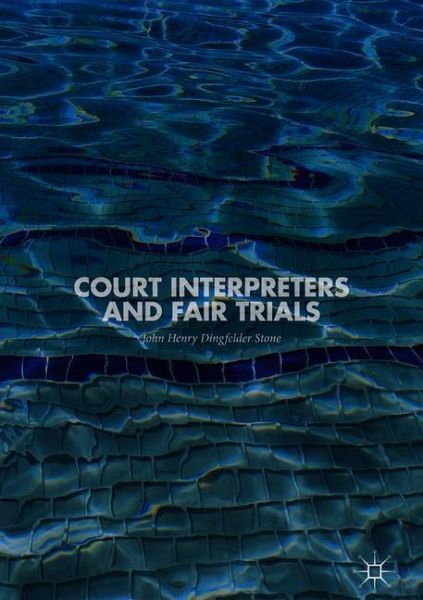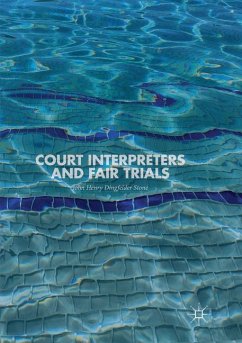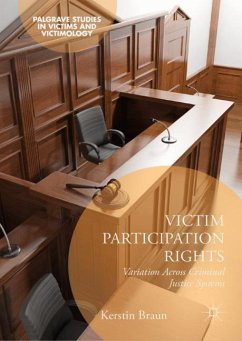
Court Interpreters and Fair Trials
Versandkostenfrei!
Versandfertig in 6-10 Tagen
113,99 €
inkl. MwSt.
Weitere Ausgaben:

PAYBACK Punkte
57 °P sammeln!
Globalization has increased the number of individuals in criminal proceedings who are unable to understand the language of the courtroom, and as a result the number of court interpreters has also increased. But unsupervised interpreters can severely undermine the fairness of a criminal proceeding. In this innovative and methodological new study, Dingfelder Stone comprehensively examines the multitudes of mistakes made by interpreters, and explores the resultant legal and practical implications.Whilst scholars of interpreting studies have researched the prevalence of interpreter error for decad...
Globalization has increased the number of individuals in criminal proceedings who are unable to understand the language of the courtroom, and as a result the number of court interpreters has also increased. But unsupervised interpreters can severely undermine the fairness of a criminal proceeding. In this innovative and methodological new study, Dingfelder Stone comprehensively examines the multitudes of mistakes made by interpreters, and explores the resultant legal and practical implications.
Whilst scholars of interpreting studies have researched the prevalence of interpreter error for decades, the effect of these mistakes on criminal proceedings has largely gone unanalyzed by legal scholars. Drawing upon both interpreting studies research and legal scholarship alike, this engaging and timely study analyzes the impact of court interpreters on the right to a fair trial under international law, which forms the minimum baseline standard for national systems.
Whilst scholars of interpreting studies have researched the prevalence of interpreter error for decades, the effect of these mistakes on criminal proceedings has largely gone unanalyzed by legal scholars. Drawing upon both interpreting studies research and legal scholarship alike, this engaging and timely study analyzes the impact of court interpreters on the right to a fair trial under international law, which forms the minimum baseline standard for national systems.














